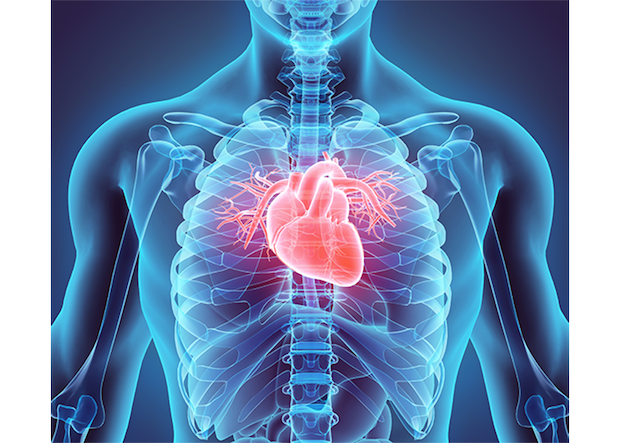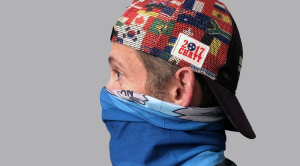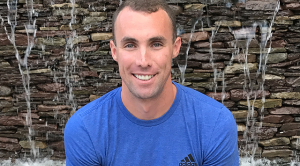
I’ll start, as usual, with the generic disclaimer that everyone should, of course, speak to their own physician more in depth about any questions or concerns that they have regarding their health. The internet is not where you should get medical information or make medical decisions generally. Fortunately, heart disease is my area of expertise and I have lots of patients who are adult athletes.
What should athletes know about their heart health?
Endurance athletes should definitely know certain things about their overall health and in particular their heart health. To start, everyone should know their numbers: blood pressure, lipid numbers, blood sugar, kidney function, BMI, etc. These are the traditional risk factors for heart disease which is the number one reason for dying in the United States, for both males and females. Approximately one American dies of heart disease every 36 seconds, totalling about ~1 million people each year.
Ischemic heart disease or more specifically coronary artery disease (CAD) is the most common type of heart disease. And one American has a heart attack (MI=myocardial infarction) every 40 seconds. This should be very sobering, and that’s more than COVID, at least right now, despite all the attention the virus has gotten. This amounts to about 650 thousand deaths each year which is a rate of ~200/100,000.
Additionally, cardiac risks increase if there is a genetic predisposition for early heart disease. By definition, anyone with a first-degree family member having a heart attack or CAD diagnosed/treated before the age of 55 male or 65 female falls into this category. You can't change your age or your genetics and specific to that point, some people have additional risk factors like hypertension (HTN) or diabetes (DM=elevated blood sugar) both of which can be partly due to a poor diet. Other risks include significant inactivity or smoking. Although, there are far fewer of those latter two categories in triathletes and endurance athletes, knowing your numbers and striving for low risk numbers are the mainstay of what you can do to mitigate your cardiac risk through lifestyle choices.
What Should Athletes Do?
Work with your doctor to ensure your health is optimal. Stay active, eat a sensible diet and take all physician prescribed medications and recommendations. Current guidelines suggest 150 minutes each week of moderate intensity exercise. Most active athletes certainly get that already and most triathletes have lower cardiac risk in part because they generally take care of their bodies. A healthy diet includes lots of fruits, vegetables, nuts, whole grains while minimizing saturated and trans fats, red meats and refined carbs. Plant based, DASH and Mediterranean diets are recommended. Sodium intake should be limited if there is elevated BP risk. That does not make athletes immune to heart disease, but it sure will lower it. Also stay alert for any symptoms which could be suggestive of a new cardiac problem. Symptoms to watch out for include: chest pain or discomfort; jaw/back/neck pain; arm/shoulder pain or significant shortness of breath-especially if these symptoms occur with activity and seem to go away with rest. About 1/5 of first cardiac events are sudden cardiac death events.
How Much Risk is There?
The risk is lower than you might think but every time an event happens at a race, it becomes sensationalized. Data from US triathlons from various sources (*published in Nov 2017 by Dr. Larry Creswell) from 1985-2016 estimated the risk of dying in an event to be ~2/100,000. That is 1/100th of the general population. Far, far less risk being active and participating in races than being inactive, developing high blood pressure and diabetes.
For the record, there are some specifics in the data which should get special attention. Most deaths were in the swim. Most were men *(>4:1). And the greatest risk was for males over 60 (which is my new age group this year). Event rates for that group was ~19/100,000. So consider getting checked out, especially if you are 60 plus years of age with a Y chromosome. Guidelines suggest that masters athletes/triathletes (anyone over 35 really) should be screened for pre-participation if there is increased risk based on: personal history/family history/concerning symptoms or abnormalities on physical exam (*ie murmur/abnormally high BP or certain vascular issues). Most people do NOT need to be screened. But, certain people may be at increased risk and probably should see a cardiologist to determine if additional testing is needed on an individual basis.
What Type of Testing is There?
There are lots of tests available and include: EKG, echocardiography, exercise treadmill stress test (with/without echo imaging), pharmacologic stress test w nuclear imaging, cardiac MRI, coronary CT scan/coronary artery calcium scoring (CACS), and cardiac catheterization.
Screening EKG's are of limited help in most people who are asymptomatic. We do EKG's to assess the conduction/electrical system and look for ischemia/infarct-signs of trouble with the blood supply or a heart attack actually happening which will usually show changes during or after one has happened. Many athletes are told they have an abnormal EKG or unusually low heart rate (HR). This is often a very normal finding since training causes the heart to become more efficient and the HR to lower since it can pump out more blood with each beat.
Stress tests in general are 'okay' for diagnosing CAD but are better in assessing risk. Adding imaging increases the sensitivity of the test for diagnosing CAD and is an additional check of risk as you can see how much heart muscle 'appears to have trouble' with it's blood/oxygen supply.
Echo testing looks at the heart structure and function. We can see how strong the heart is and how the valves look and whether they stick or leak inappropriately and also see the beginning of the thoracic aorta. This is a place where aneurysms can occur.
Coronary artery calcium scoring (CACS) and CT of the chest looks to see if plaque has already formed in the coronary arteries and is an anatomic test looking at amount/density/severity of plaque. Risk goes up-and significantly when the number is greater than 400 on a coronary artery calcium score and those patients usually get additional tests.
Cardiac catheterization, aka coronary angiography, is the gold standard for assessing amount of plaque/stenosis and is the means of opening up clogged up arteries urgently with a stent, if needed.
It’s important to note that all of these tests have a certain number of false positives and false negatives. In addition, there are costs involved and all of these things need to be weighed when ordering tests for patients. I won’t go into Bayesian considerations. None of the tests are perfect and there are reasons that some can look abnormal but patients can actually have normal coronary arteries. This is where the expertise of your physician plays an important role in proper diagnosis of test results.
If anyone is concerned about their heart related risk, talk to your doctor about considering a CACS. It’s a very sensitive test which is low cost and can give you peace of mind that your heart risk is truly very low or not. If you have any score above 0 for the coronary artery calcium score, you likely have CAD. It may be minimal, but you have it. I don't usually do multiple 'screening' tests once you have a real number. We look for symptoms that might need testing for risk stratification at that point and always treat lipids aggressively. There are guidelines for who should be on statins or medication to lower the LDL. Also, comments will be made if there are ‘incidental’ findings on the scan: including lung nodules/mass (*a possible sign of a lung tumor) or aortic aneurysm.
As a Cardiology Specialist with additional training in Sports and Exercise Cardiology, I believe in preventative medicine. Staying active and eating a healthy diet sends a message that you care about your health. It’s great to see so many fit/active people at races and yet a small number are actually more at risk than they think and should consider getting their heart evaluated. I had my last CACS just two years ago and will plan to repeat it in the next few years.



